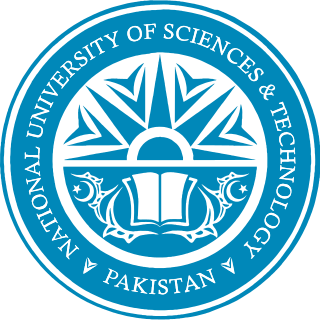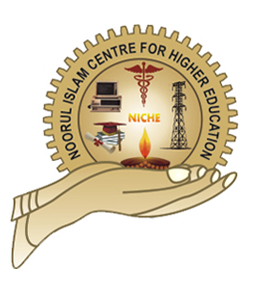A quality management system (QMS) is a collection of business processes focused on consistently meeting customer requirements and enhancing their satisfaction. It is aligned with an organization's purpose and strategic direction. It is expressed as the organizational goals and aspirations, policies, processes, documented information, and resources needed to implement and maintain it. Early quality management systems emphasized predictable outcomes of an industrial product production line, using simple statistics and random sampling. By the 20th century, labor inputs were typically the most costly inputs in most industrialized societies, so focus shifted to team cooperation and dynamics, especially the early signaling of problems via a continual improvement cycle. In the 21st century, QMS has tended to converge with sustainability and transparency initiatives, as both investor and customer satisfaction and perceived quality are increasingly tied to these factors. Of QMS regimes, the ISO 9000 family of standards is probably the most widely implemented worldwide – the ISO 19011 audit regime applies to both and deals with quality and sustainability and their integration.
The ISO 9000 family is a set of five quality management systems (QMS) standards by the International Organization for Standardization (ISO) that help organizations ensure they meet customer and other stakeholder needs within statutory and regulatory requirements related to a product or service. ISO 9000 deals with the fundamentals of QMS, including the seven quality management principles that underlie the family of standards. ISO 9001 deals with the requirements that organizations wishing to meet the standard must fulfill. ISO 9002 is a model for quality assurance in production and installation. ISO 9003 for quality assurance in final inspection and test. ISO 9004 gives guidance on achieving sustained organizational success.

The National University of Sciences & Technology (NUST) is a multi-campus public research university with its main campus in Islamabad, Pakistan.
Quality management ensures that an organization, product or service consistently functions well. It has four main components: quality planning, quality assurance, quality control and quality improvement. Quality management is focused not only on product and service quality, but also on the means to achieve it. Quality management, therefore, uses quality assurance and control of processes as well as products to achieve more consistent quality. Quality control is also part of quality management. What a customer wants and is willing to pay for it, determines quality. It is a written or unwritten commitment to a known or unknown consumer in the market. Quality can be defined as how well the product performs its intended function.
Astra Manufacturing Polytechnic is a technical institute in Jakarta, Indonesia and is known as Polman. Polman is a term formed from the Indonesian words Politeknik Manufaktur.

The Pakistan Navy Engineering College (PNEC), (Urdu: دانشکدہ بحریہ برائے علومِ مہندسی ، پاکستان) also called PNS Jauhar, is a military college operated by the Pakistan Navy. Located in Karachi, Sindh, Pakistan, it is also a constituent college of the National University of Sciences and Technology, Pakistan. It grants bachelor's, master's and doctoral degrees in the science and engineering disciplines.

Don Bosco Technical College, also referred to by its acronym DBTC, Don Bosco Mandaluyong or informally DB Manda, is a private Catholic basic and higher education institution run by the Salesians of the Society of Saint John Bosco in Mandaluyong, Metro Manila, Philippines. Established in 1953 by the Salesians, it is the first Don Bosco Educational Center in Metro Manila. Don Bosco Mandaluyong offers co-educational primary (elementary) and secondary education, co-educational senior high school and college, night school, and vocational training for out-of-school youth.

The University of Dubrovnik is a public university located in Dubrovnik, Croatia. It has its roots in various successive institutions dedicated to the teaching of maritime engineering and naval architecture. In 1996, in recognition of the city's maritime traditions, the Polytechnic was established and was later given full university status in 2003. The university has since diversified its courses but the maritime sciences remains its traditional strength.

Loyola Polytechnic Institute is an educational institution of basic and technological education in the Dominican Republic, founded by the Society of Jesus in 1952. Its Loyola Specialized Institute of Higher Education (IEESL) grants engineering degrees at the undergraduate and graduate level in the areas of agrobusiness, electrical, industrial, and telecommunications. Its school for intermediate education offers degrees in agronomy, industrial mechanics, automotive and diesel mechanics, electrical installation & maintenance, electronic communications, and digital electronics & microcomputers. An elementary school and an English and French language school are also a part of IPL.
The Management Development Institute of Singapore (MDIS), founded in 1956, is the oldest non-profit vocational university for lifelong learning in Singapore. It offers a variety of degree programs such as business management, engineering, fashion design, nursing, mass communications, psychology and hospitality management.

The Technological University of Pereira is a national public research university in Pereira, Risaralda, Colombia. The university is located in the southeast of the city.
Masinde Muliro University of Science and Technology or MMUST, formerly Western University College of Science and Technology, is a non-profit public university in Kenya. The university is named after Masinde Muliro, a Kenyan politician who helped found the institution. It has approximately 25,000 students across its branches: Main Campus and its two satellite campuses, Webuye Campus and Bungoma Campus

Tishk International University (TIU) is a private university established in 2008 in Erbil-Kurdistan, Iraq and owned by local and International investors and educators. Tishk International University is granted ISO 9001:2015 Certificate for the Quality Management System and is a member in the Union of Arabic Universities.

Technical University of Mombasa (TUM) is a public university located in the coastal city of Mombasa. It is amongst the oldest institution of higher learning in Kenya. It is one of the National Polytechnics recently elevated to a fully fledged University in Kenya. It was awarded its charter in 2013 by-then president Mwai Kibaki.
Bharathiyar College of Engineering & Technology is a private engineering institute located in Karaikal, Puducherry India. The college is operated under the Sri Balaji Educational and Charitable Public Trust, and affiliated to Pondicherry University. BCET offers undergraduate and postgraduate courses in the fields of engineering and technology. All courses offered by BCET are approved by AICTE.
The University of Cagayan Valley (UCV) is a private, non-sectarian university located in Tuguegarao, Cagayan Valley, Philippines. It was formerly known as Cagayan Teachers College and Cagayan Colleges Tuguegarao.
Erry Yulian Triblas Adesta, is an Indonesian academic who was a former professor at International Islamic University Malaysia (IIUM). He is currently a Professor and Vice Rector for Planning, Development and Cooperation at Universitas Indo Global Mandiri. He is a former Dean of the Faculty of Engineering and was the Deputy Dean of Postgraduate & Research at the Faculty of Engineering, IIUM. In Indonesia, he has been active as an Assessor for National Accreditation Council since 2003, and reviewer for Competitive Funding Program - Indonesian Higher Education Council since 2006. His areas of expertise include manufacturing engineering, manufacturing cost, supply chain management, project management, and value engineering.

Noorul Islam Centre for Higher Education (NICHE), formerly Noorul Islam College of Engineering, is a private co-educational Institution in Kumarakovil, Thuckalay, Kanyakumari District, Tamil Nadu, India. The institution was founded in 1989 by A.P. Majeed Khan and it was declared as a Deemed to be University by the Ministry of Human Resource Development, Govt. of India at 8 December 2008. It is now run by Noorul Islam Centre for Higher Education (NICHE) Society.

Turin Polytechnic University in Tashkent is a non-profit public higher education institution in Uzbekistan. Turin Polytechnic University in Tashkent was established in 2009 in a partnership with Politecnico di Torino, Italy. TTPU's main objective is to prepare specialists for the automotive, mechanical engineering, electrical industries and companies in the field of civil engineering and construction, and the power industry, in accordance with the educational programs adopted in collaboration with Politecnico di Torino, Italy.










